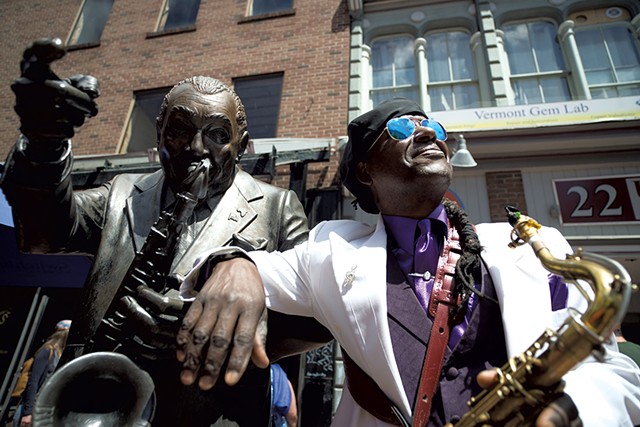
- Courtesy Of Laura Carbone
- Joe Moore
Joe Moore (November 27, 1948-March 26, 2024) introduced himself to Vermont the same way he would announce his presence on stages throughout the Green Mountains for the next 50 years: loudly. As the legend goes, the tenor saxophonist had been traveling to Canada to hook up with a touring band that had invited him to play a run of shows. But Moore, who was Black, and a wandering musician with little use for pesky things like credit cards or an ID, couldn't persuade the border guards to let him through. Instead, they gave him a lift to the nearest place that passed for a city in northern Vermont: St. Albans.
It was either 1975 or 1973. Or maybe 1972. No one is exactly sure, including the folks who were there. Also, it doesn't really matter. What does matter is that from the moment Moore strode into the Backstreet Bar, sax case in hand, Vermont's music scene was never the same.
That night, the John Cassel Band was onstage, playing rock and blues for the dive bar's usual crowd of bikers and roughnecks. "Let's just say there weren't a lot of people who looked like Joe there," recalled the band's lead guitarist, Paul Asbell. During a set break, Moore asked the group if he could sit in for a few songs. Cassel obliged.
"And Joe pro-ceeded to blow the roof off the place," Asbell said. In particular, Moore's solo on the Muddy Waters classic "I'm Ready" left a lasting mark even 50 years later. "That's the one that floored us," Will Patton, who was playing bass that night, told Seven Days by email.
It was the first of countless occasions at which Moore floored a Vermont crowd. For the following five decades, he was a fixture of the local scene, performing with such bands as the N-Zones, the X-Rays and his own group, the Joe Moore Band. He was a force of nature onstage, revered for showmanship, musicality and the irrepressible energy he blasted through his horn, night in and night out.
"We all acknowledged that Joe was the tornado," said Phish drummer Jon Fishman, who played with Moore in his 1990s side project Pork Tornado.
Fishman was addressing the hundreds who gathered last month at the First Unitarian Universalist Society of Burlington to celebrate Moore's life and music. Moore, who was diagnosed with prostate cancer in 2021, died in March following complications from surgery. He was 75.
This Sunday, June 9, as part of Burlington Discover Jazz Festival, Pork Tornado headline a daylong tribute to Moore at City Hall Park. Also appearing are blues trio Dwight + Nicole, soul singer Myra Flynn, and blues rockers the All Night Boogie Band. Moore's blues act Left Eye Jump will serve as the house band for a slew of local blues, soul, and R&B luminaries, including Nobby Reed, John Lackard, Bob Stannard and Jenni Johnson, many of whom Moore played with at jazz fest gigs and elsewhere over the years.
Born in Columbus, Ohio, Moore grew up in a strict household in Winter Park, Fla. He clashed often with his U.S. Army veteran dad and left home around 15, according to his older sister, Betty Hires.
"Certain things he wasn't going to take, so he left," she said.
Moore bounced around Florida, living with relatives in Miami and then Jacksonville, where he attended high school. He was a fixture in the school band wherever he went, having discovered the sax in seventh grade.
"He picked up the horn and never put it down," Hires said.
At one point, a teacher in Jacksonville accused Moore of lying.
"Joe didn't like to be lied on," said Hires, who didn't recall what precipitated the incident, "so he got upset and he just walked off."
Moore dropped out of high school, picked up his sax and hit the road. He started playing on the Chitlin' Circuit, a network of nightclubs in the South and upper Midwest that afforded Black musicians and comedians places to perform. Over the next decade, Moore toured and shared stages with some of the most important figures in soul and R&B, including Lavell Kamma, Wilson Pickett, the Staple Singers and the Isley Brothers.
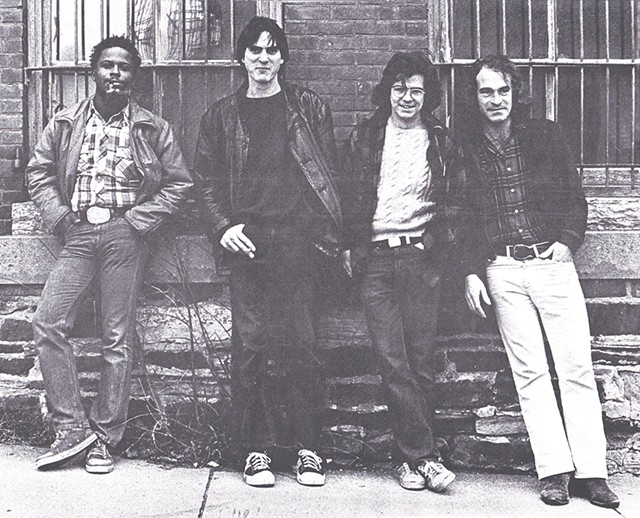
- Courtesy
- The N-Zones, from left: Joe Moore, Bruce McKenzie, Jim McGinniss and Zoot Wilson
Despite his wanderlust and the accidental nature of his landing in Vermont, Moore found a home here. While Hires noted that her brother enjoyed the camaraderie of musicians he found in the Green Mountains, he had another, less expected reason for staying.
"He loved the cool weather," she said. "He'd come home and couldn't stand the heat. He just liked to be cool."
That was true in more ways than one.
As several speakers noted at the sax player's music-heavy memorial in May, Moore had an ease about him. Though he wasn't shy, offstage he was quiet and humble almost to a fault. He loathed self-promotion and rarely used his southern drawl to speak about himself.
"There was something innocent about Joe," Montpelier blues musician Dave Keller said by phone. "I think people loved him more for it."
Moore also had a habit of dressing for the occasion. For rock gigs, he'd sport a sleeveless denim jacket and leather pants. For blues and R&B shows, he might don a natty, colorful suit. And he always wore sunglasses.
"He dressed to the nines," said Keller, who played with Moore in a number of blues and R&B combos. "It was that old-school soul vibe that he learned when he was young, traveling around Florida and then with the Isleys and the Staples. He always had a cool look."
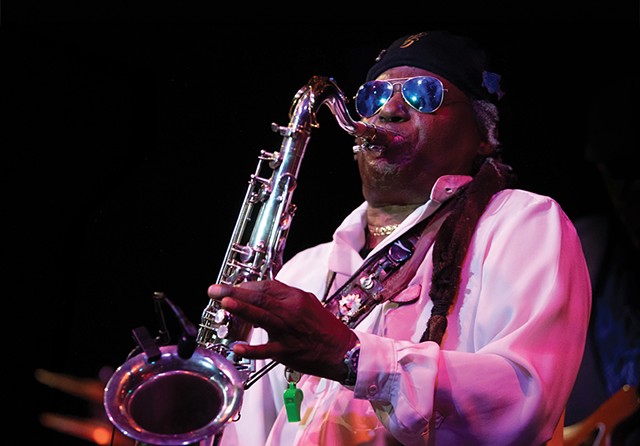
- Courtesy Of Laura Carbone
- Joe Moore
Indeed, Moore commanded attention wherever he played. At the memorial, his X-Rays bandmate Peter Riley quipped that playing with Moore was an exercise in being invisible, because "all eyes were always on Joe."
All ears, too.
Moore summoned an almost otherworldly power in his playing. To witness it was a visceral experience, even if his exuberance sometimes pushed his horn out of key.
"His sound was so big," Keller said, likening Moore's style to that of the E Street Band's Clarence Clemons. "It was that raw, throaty sax thing that no one really does anymore. We used to joke that his lungs must have been three times the size of a normal person's."
If Moore knew a gentler way to play, he rarely showed it. As several former bandmates shared in memorial speeches, he prided himself on his professionalism and leaving it all on the stage, whether he was opening for Taj Mahal or playing a Tuesday set at Nectar's nightclub in Burlington.
"Joe put 110 percent of himself in every lyric he sang and every note he played," Asbell said. "He couldn't help it."
That was true even when he wasn't playing his sax. A lesser-known talent of Moore's was his facility with a penny whistle. In addition to playing with rock, blues, and R&B bands, he frequently sat in with Celtic combos, especially around St. Patrick's Day, when he referred to himself by a cheeky nickname: Joe Mo, the Irish Bro.
Moore's dedication was evident in other areas of his life, too. He volunteered for 15 years at C.P. Smith Elementary School in Burlington, teaching music. Students there will continue to benefit from the Joe Moore Music for Youth Scholarship Fund established after his death.
Moore never married, and the rest of his family, including his only daughter, Alexandra, lives far away. When Moore got sick in 2021, his longtime friend Sandy Combs served as his caretaker. Combs, who is retired and lives in Shelburne, drove Moore to every doctor's appointment and visited three or four times a week to cook, clean and do anything else Moore needed.
In 2022, Combs organized a massive outdoor benefit concert for Moore at the Essex Experience, featuring dozens of musicians. Moore was driven to the event in a medical transport van and performed in a wheelchair.
"Joe's presence here was such a gift to people in Vermont," Keller said. "He always gave it everything and made sure people in the club or wherever he played were entertained."
Moore continued playing until just a couple of weeks before his death, giving everything until he had nothing left to give.



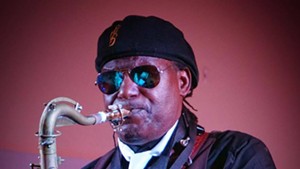






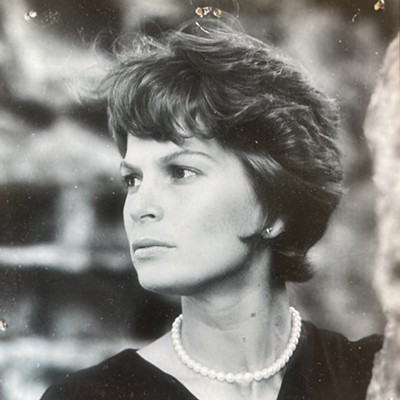
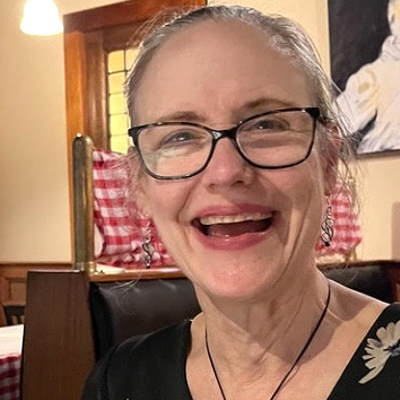
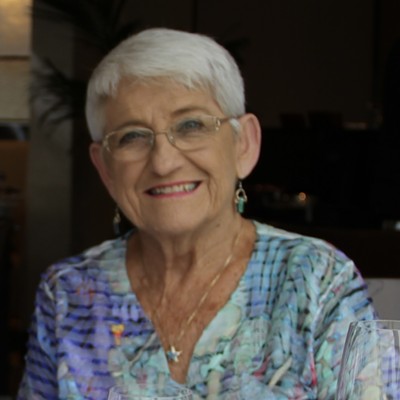
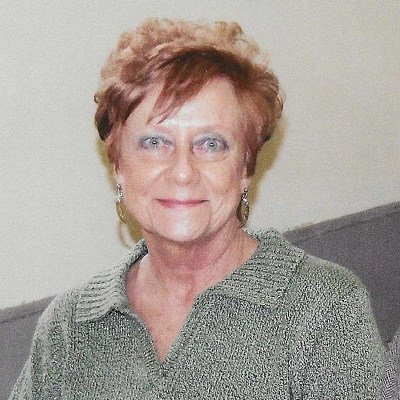
Comments
Comments are closed.
From 2014-2020, Seven Days allowed readers to comment on all stories posted on our website. While we've appreciated the suggestions and insights, right now Seven Days is prioritizing our core mission — producing high-quality, responsible local journalism — over moderating online debates between readers.
To criticize, correct or praise our reporting, please send us a letter to the editor or send us a tip. We’ll check it out and report the results.
Online comments may return when we have better tech tools for managing them. Thanks for reading.